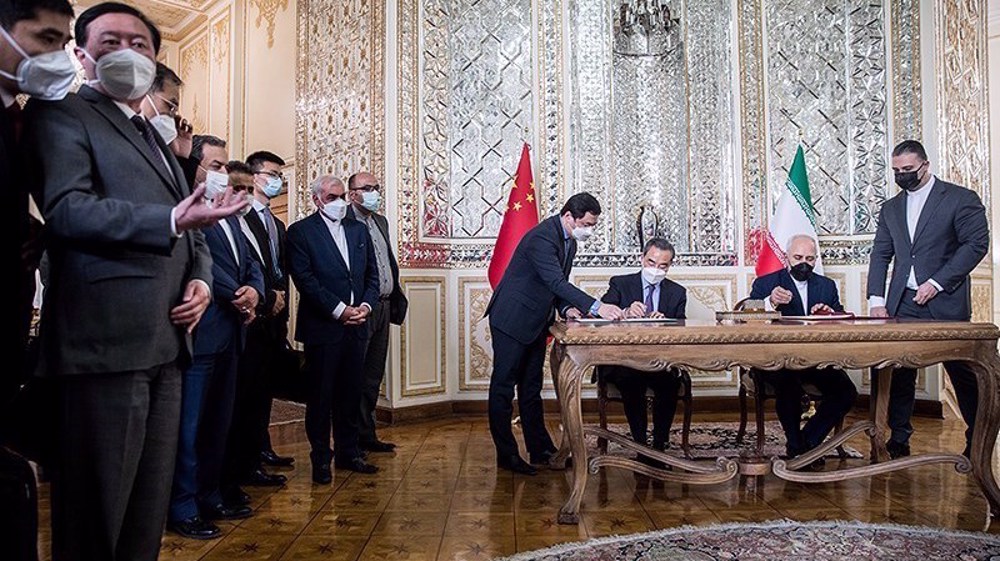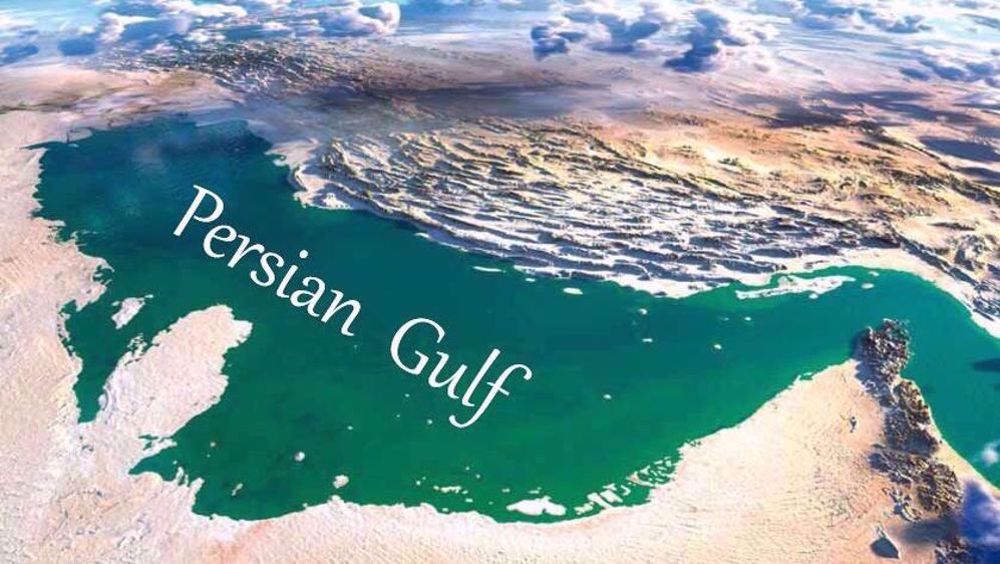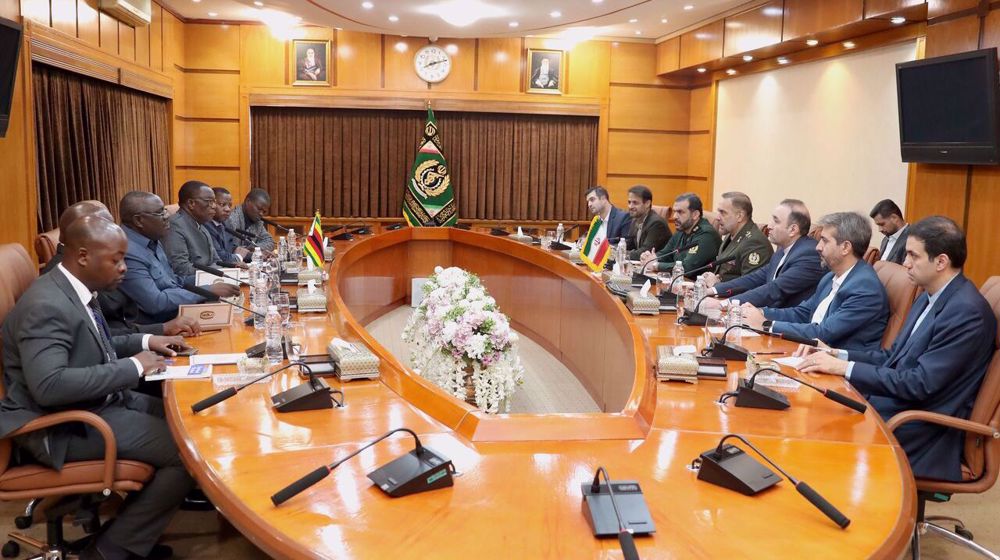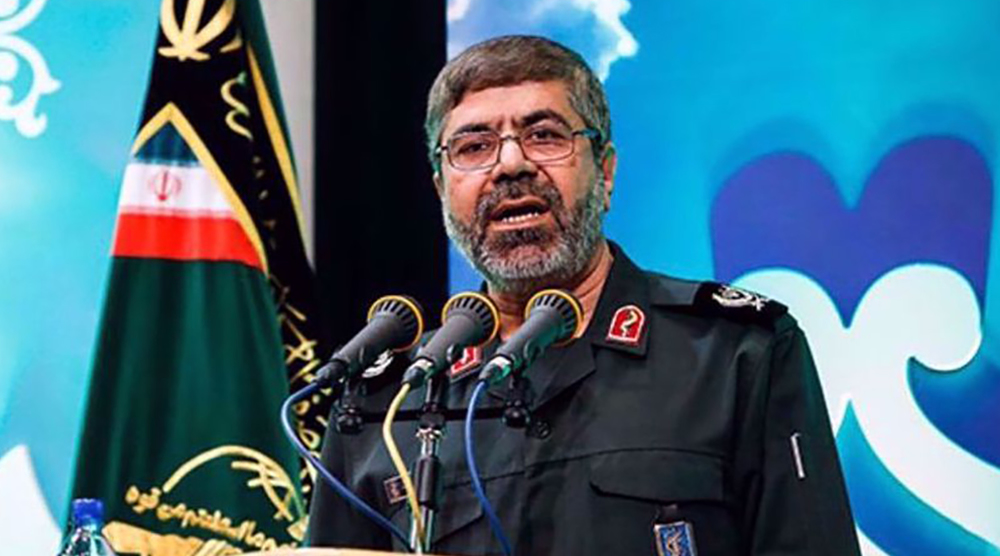Landmark Iran-China deal boosts anti-US stance, regional security: Analyst
An American political analyst says the 25-year cooperation agreement signed by Iran and China reinforces both countries' stance against the United States’ economic blackmail and shores up security in the region.
During a ceremony in Tehran on Saturday, Iranian Foreign Minister Mohammad Javad Zarif and his Chinese counterpart Wang Yi put their signatures on the Sino-Iranian Comprehensive Strategic Partnership to strengthen the traditional friendship between the two states.
The deal, which was five years in the making, includes Chinese investments in Iran’s energy and infrastructure sectors in return for steady supplies of Iranian oil.
“Besides having diplomatic, economic, and cultural benefits for both Iran and China, the 25-year comprehensive strategic partnership agreement has clear geopolitical implications. It strengthens both countries' position vis a vis the rogue economic blackmail of the US which tries to impose 'maximum pressure' on its self-proclaimed rivals by the imposition of economic and political sanctions,” Dennis Etler, a former professor of anthropology at Cabrillo College in Aptos, California, told Press TV.
“A strong strategic relationship between China and Iran will also result in enhanced security in the region and contribute to the peace process. China has friendly relations with all nations in the Middle East and can serve as an honest broker in resolving conflicts between them," he added.
Etler said while the US tries to fan the flames of conflict in the region so it can fish in troubled waters and better assert its influence to manage affairs in its own interest, it is in China’s commercial interest and in the interest of its regional partners to douse the flames and establish a regional sphere of peace and security.
He also said that China and Iran are heirs to two ancient civilizations and that their recorded history of contact exceeds 2,000 years.
“Diplomatic exchanges between the Han dynasty and the Parthians were established in ancient times and have continued ever since. Iran was a central node of the Silk Road that linked China with countries and regions to its west and extended to Europe,” Etler underlined.
“History shows that relations between these two great civilizations were always based on mutual respect and mutual benefit. Together they have also suffered weal and woe as victims of foreign aggression. China and Iran can be said to have 'civilizational ties' that bind them together, unlike their relations with Western powers which are based on the exploitative mindsets of colonialism and imperialism.”
The analyst further drew a distinction between the foreign policies of the US and China, noting that Beijing seeks to promote global peace while Washington wants to hinder other nations’ progress.
“In the context of today's world, in which China is on the rise and the US is in decline, the contention between the two sides has steadily escalated as the US tries by every means possible to make sure, as US President [Joe] Biden has said, that China doesn’t ‘become the leading country in the world, the wealthiest country in the world, and the most powerful country in the world,’” he said.
Elter also said rather than working toward a world of “common destiny” in which all nations prosper, the US wants to stymie other nations' growth and development so it can rule over them, exploit their people and extract their wealth "like a blood-sucking vampire."
"China, on the other hand, wants to lend a hand to help all people and nations grow and develop in peace and security. The differences between the foreign policy of the US and China could not be starker.”
Iran and China, which are both under illegal US sanctions, signed the strategic partnership accord on the 50th anniversary of the establishment of their bilateral diplomatic relations.
Yemen strikes several vessels in fresh defensive, pro-Palestinian operations
No peace in world without permanent ceasefire in Gaza: Pakistan PM
VIDEO | After 12 years of closure, Yemen’s national museum reopens
VIDEO | Pariah regime cornered
VIDEO | Palestinian rescuers search for casualties following Israeli strike on Rafah
7 people, incl. child, killed in attack on Shia mosque in NW Afghanistan: Report
Navy escorts Iranian ships in Gulf of Aden, Atlantic Ocean to ensure safety: Cmdr.
Israeli minister urges killing instead of kidnapping Palestinians in Gaza










 This makes it easy to access the Press TV website
This makes it easy to access the Press TV website